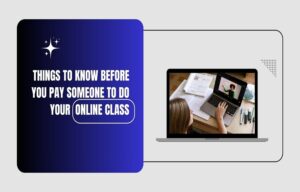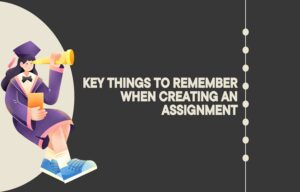The rewards of becoming a school counselor

School counseling can be a difficult job, and highly demanding, but if you want to make a difference in people’s lives, it’s one of the best things you can do with yours. It will present you with an incredibly varied caseload, with no two days being the same, so you’ll constantly have the opportunity to learn and improve on what you do. You’ll experience the joy of working with young people, helping them to resolve problems and seeing their lives improve as a result. You’ll be there to help when things go wrong, and you’ll also be able to set them on the right path for the future. This article looks at some of the things to consider when you’re thinking about studying for this career.
Helping people right at the start of their lives
Most people who work in the psychology and counseling professions spend their time helping people who already have serious problems. Although that is sometimes the case with children and young people, a lot of those you see will be dealing with much more minor issues or will be at the stage when big issues are much easier to resolve. This means that you’ll see more progress in the people you help, and you’ll be able to make a bigger positive difference in their lives.
Getting an online masters in school counseling will put you in a position to help with problems of all kinds, but will also qualify you to do proactive work helping young people to build better futures for themselves. You’ll get to know the people you work with over a period of years, and you’ll be able to assist them through the process of growing up, dealing with new responsibilities and learning how to engage with the world in a positive way.
Just by being there, you’ll be able to even the playing field so that kids who don’t have great emotional support or guidance at home can still develop into well adjusted, confident adults. You can give them the coping skills to deal with setbacks and the perspective they need to keep their worries in proportion, as well as improving their ability to develop healthy relationships with other people.
Dealing with bullying
One of the most common problems in students’ lives is bullying, and when this is ignored, they can develop problems which they’ll carry with them for the rest of their lives. You will be able to reassure kids who are being bullied and help them improve their sense of self-worth. You’ll be able to advocate for them within the school if you feel that disciplinary measures are failing, and you can act as an intermediary between them, their parents and school authorities. Most importantly, you will make them feel seen.
Resolving bullying also means counseling bullies. It will be your job to help them recognize the harm they’re doing and understand why it’s wrong. You’ll find that if you can get beyond their efforts to present a tough exterior, there are often insecurities, and sometimes serious problems, underneath. They may need your help just as much as their victims do. By intervening at this stage, you’ll also reduce the risk of them getting involved in more serious trouble later in life.
Bullying is often triggered by an element of prejudice, which may stem from what a child has been taught at home. As a counselor, you can prompt young people to question such ideas and develop a new respect for those they have targeted as individual human beings who are not so different from themselves.
Helping abused children
One of the most stressful aspects of being a school counselor is that if you do it for long, you will come across instances of child abuse. These may include situations where parents are abusive or where children feel unable to tell their parents or guardians because another family member is the one doing harm. In such cases, you will be obliged to inform the authorities, but you will retain an important role in helping to protect children during what follows. Your response will make a big difference in how they come to terms with what has happened, and it can be pivotal in enabling them to stop blaming themselves.
This can be a difficult situation for a counselor to navigate because children often feel unable to open up about abuse all at once. They may not even have the language to describe what is happening to them. They may feel a need to protect the abuser. Sadly, they may also be blamed if an abuser is removed from the family home. In this situation, you are not simply there to reassure them, but to provide them with a sense of what is normal and reasonable at a time when the other adults in their lives are feeling shocked and confused. With the right support from you, they are much more likely to be able to process their experiences and recover their confidence in what the rest of life is likely to be like. You can help them to express feelings of anger and distress in a healthy way and minimize disruption to their education.
Making life better for families
Sometimes when children are going through difficult experiences at home, it really isn’t anyone’s fault. When families are under pressure, young people can easily end up taking on too many responsibilities and struggling to cope themselves. They may be acting as carers for elderly, sick or disabled relatives, and need extra support to cope. If money is tight, they may not be getting enough to eat. If the family is experiencing harassment or they live in an area where there’s a lot of crime, they may feel unsafe.
In situations like these, a counselor can not only provide emotional support but also act as a connection point for practical support, identifying organizations which may be able to help. When parents are overwhelmed, they may not realize how badly their children are being affected, and if they have been resistant to accepting help due to feelings of shame, you may be able to persuade them to do so for the child’s sake. You can also reach out to teachers, sports coaches and others within the school – with the child’s consent – to let them know what’s going on and ask them to bear it in mind when it comes to homework, disciplinary issues or a need for additional learning support.
Helping kids through bereavement
There’s never an easy time to lose a friend or loved one, but it’s especially difficult for children. When it’s a family member, young people may feel a need to support others and not really have a neutral space in which to express their feelings. When it’s another school pupil, it’s important for students to be able to process their feelings together and to grieve as a community. As a counselor, you’ll help them to deal with situations like this, being there to listen and helping them to make sense of emotional reactions which may be confusing and distressing in themselves.
The stress of bereavement can cause kids to act out, and if this happens, you can step in to mediate and explain what’s going on. You can keep track of anniversaries and other special days when children are more likely to be upset. You can also help groups of students who are reacting to loss in different ways to understand each other’s behavior, keeping them from coming into conflict and making it easier for them to support each other. What they learn in this situation will also help them later in life.
Helping to diagnose learning disorders
Many children who struggle at school or get into trouble actually have undiagnosed learning disorders. Differences like ADHD, dyslexia and dyscalculia can make it difficult for students to achieve what teachers expect of them, but they may not understand why they keep falling short or be able to articulate the particular difficulties they’re having. Although a specialist is often required to make an official diagnosis, you will be in a good position to recognize symptoms and initiate the process of having them assessed. You may also be able to suggest interim solutions, such as providing dyslexic kids with green color filters to place over their books, as these often make it easier for them to read.
Some people with autism face specific learning challenges. In some cases, these will be the first signs which lead to a diagnosis and proper support. In other situations, you may find yourself providing support to autistic students who are able to do well in regular classes but face additional emotional strain when doing so. You can work with school authorities to arrange for them to have access to a quiet space or speak with teachers to gain permission for them to bring comfort objects to class. Where appropriate, you can also help other students to understand their needs, reducing the risk of clashes or bullying.
Identifying early signs of mental illness
Although most mental illnesses are more likely to develop in early adulthood, they do affect children, and being alert to the symptoms can lead to early diagnosis, making it easier for those who are affected to get appropriate treatment and learn how to manage their symptoms. School counselors are often the best-placed people to spot the early signs, especially in children who don’t have frequent medical checkups.
The two most common mental illnesses, anxiety and depression, are sadly not uncommon in children, but families and teachers don’t always realize this. Recognizing these problems when they occur means that you can get children the right kind of support not only in terms of therapy but also from those around them. You can also work with their doctors to ensure that any necessary changes are made at school to enable them to participate without their symptoms being aggravated. With their permission, you can speak up for them when they feel unable to do so themselves.
In young people, the other mental illness you are likely to encounter frequently is anorexia. This is very dangerous and needs specialist treatment, but those undergoing treatment often need support at school as well to prevent them from relapsing. You can also help to reduce the risk of anorexia developing in the first place, not only by ensuring that schools take a positive approach to body image but also by working more generally to address anxieties and, specifically, young people’s feelings that they lack control over their lives.
Dealing with drug and alcohol abuse
When children haven’t been getting the support they need, drug and alcohol abuse are all too common. This may include the abuse of substances which are not actually illegal – some of them prescribed to adults to treat conditions such as insomnia, and others that no sane adult would try because they’re far too dangerous to consume. Young people are naturally inclined to experiment. They may not realize the damage being done to their bodies because the symptoms take time to become apparent. Where addictive substances are concerned, they may feel no particular need for more after the first time they try them, leading them to fail to recognize the risks. A lack of life experience can make it difficult to understand what addiction really means.
As a school counselor, you will usually be the person who takes the lead in designing campaigns to make students aware of these dangers. You will also work with individual young people who are at heightened risk, and you’ll need to develop different strategies for having these conversations with different students. In some cases, you will be able to step into situations where there is a family history of substance abuse and help young people to break the cycle. You can also help them gain the skills to resist peer pressure and to understand how being under the influence can put them at risk of exploitation, thereby helping them to recognize and avoid potentially exploitative situations.
Helping troubled kids grow up into good citizens
When kids already have a history of making mistakes and getting into trouble, they need support to get their lives back on track. You can play an important role in that while they’re at school. It will be your job to keep them from dropping out by emphasizing the value of education – and to make sure that they don’t disrupt the education of others. Often situations like this develop simply because young people have no one in their lives who will listen to them, with each wrong move alienating people more, but you can be the person who toughs it out and turns that around.
There are few things that are more rewarding in life than seeing a kid who was on course for a life of petty crime and prison sentences get it together and re-engage with society. Often kids in that situation have lost all faith in their ability to succeed academically or to make friends at school, so each such achievement means the world to them. By persevering through mood swings and setbacks, you can give them new faith in themselves. When you do so, in addition to helping them, you will be helping everyone they interact with in the future, including children they go on to have themselves.
Helping young people find the right career
As you look towards the future, you will be helping young people at all levels of achievement to prepare for the next step after school. Some students will be going on to college but will have doubts or questions which they feel unable to raise with anyone else. Some will be determined to break into difficult careers, and you will need to help them identify the best route for that and understand the effort which will be involved, while making sure that they are aware of alternatives if they don’t succeed. Some will be expected to join family businesses or pick up family trades, and you can help them to sort through their feelings about that, to make sure that it’s really the right choice for them.
Some kids, of course, will have no idea what they want to do, so you will be the person to talk to them about their options and to try to make the link between things they’re interested in and possible careers. You may also find yourself dealing with girls who have childcare responsibilities, are pregnant or see marriage as their whole future. It will be your job to make sure that they understand that there are still ways they can build careers in the future if they choose to do so – perhaps by talking about your own online degree.
By working as a school counselor, you will have the chance to change hundreds of young people’s lives for the better. You might not win every time, and that can be tough, but you will know that, overall, you’re making a truly positive difference. Even when kids yell at you, their parents accuse you of interfering or other staff members complain because you’re asking them to change the way things are done, you’ll know that it’s worth it. In years to come, they’ll be grateful for what you’ve accomplished. You may not get a cape to wear, but to some of those children, you’ll be a hero.







